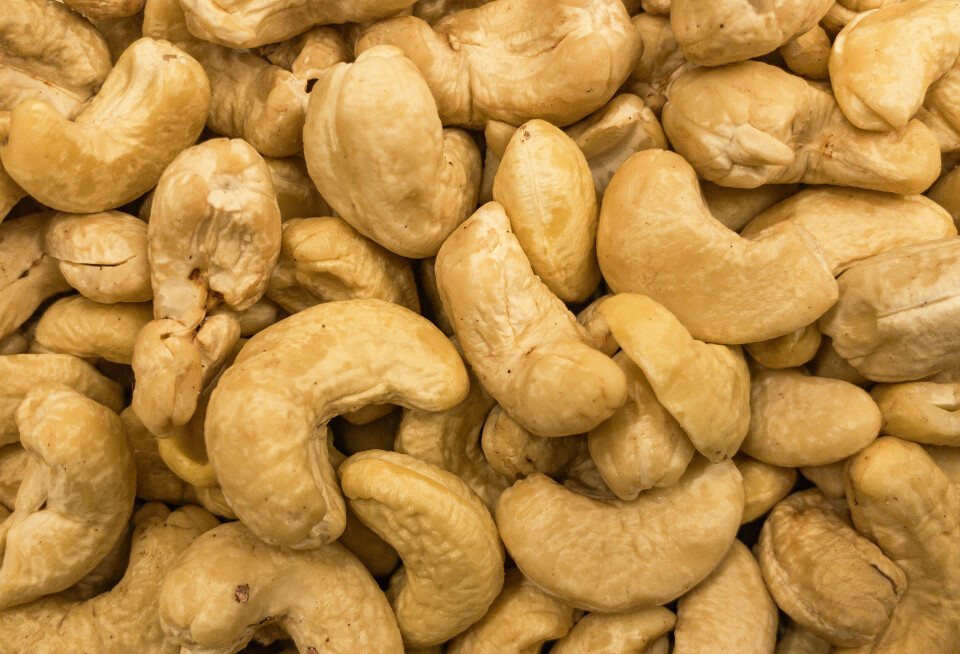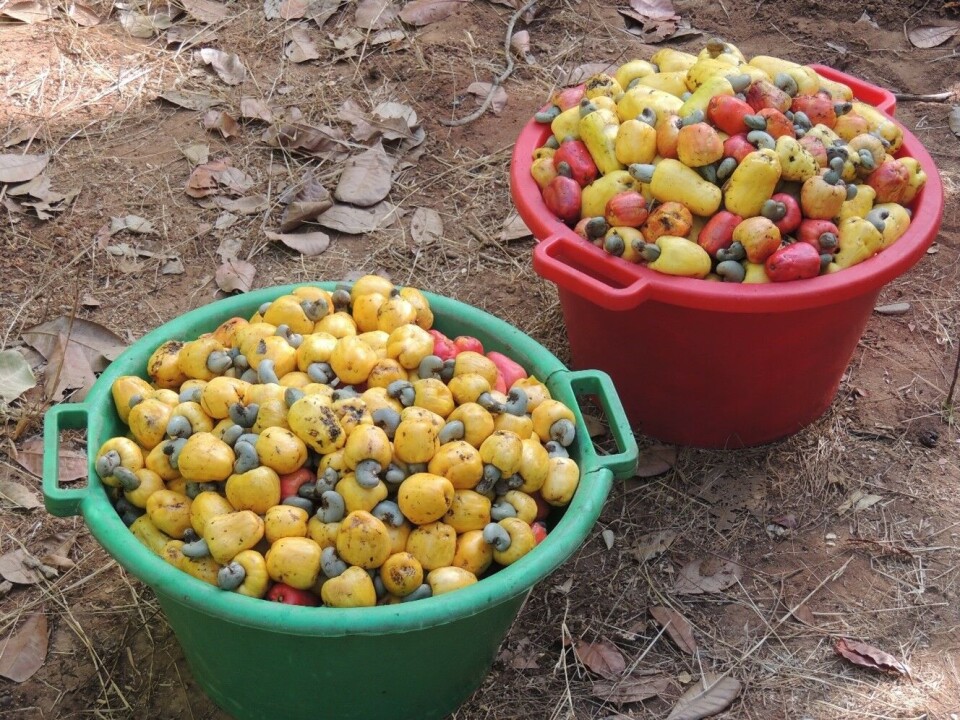THIS CONTENT IS BROUGHT TO YOU BY the Norwegian University of Life Sciences (NMBU) - read more
We're eating more cashew nuts – and the consequences are serious
Growing interest in plant-based diets and the use of cashews as a dairy alternative have driven up demand.

A high proportion of food in Norway is still imported.
Cashew nuts are just one of the increasingly popular foods that are not grown in Norway.
Growing interest in plant-based diets and the use of cashews as a dairy alternative have put them in high demand – not just in Norway, but worldwide. The cost of this demand is mostly borne by people living in the areas where cashews are produced. In this instance, Guinea-Bissau.
The rise of large-scale cashew farming in Guinea-Bissau has transformed local ecosystems and food habits – with effects on nutrition, cultural practices, and environmental sustainability in this small West African nation.
The cashew conundrum
Cashews have become a lifeline for farmers in Guinea-Bissau.
Large plantations devoted to cashew production have brought economic opportunities to rural communities. With this shift, however, there has been a sharp decline in diverse ecosystems that were once a source of wild edible plants.

These plants, long collected and consumed by rural households, are rich in nutrients and add variety to local diets.
As cashew farms expand, wild plant species are disappearing, foraging practices are changing, and so too is their role in rural diets.
What’s the problem?
When farming becomes increasingly focused on only a few cash crops, diets around the world become less diverse.
This contributes to hidden hunger, where people consume enough calories but lack essential nutrients.
“Research worldwide has consistently shown that there's a global nutrition crisis, with more than half of the global population consuming inadequate levels of several micronutrients – which are essential to conduct a healthy life,” says Ana Leite.
She is a researcher at the Norwegian University of Life Sciences (NMBU).
“Guinea-Bissau is one of the least food-secure countries in the world and dietary diversity that incorporates important micronutrients, is critically low,” she adds.
Changing landscapes and livelihoods
Leite’s research revealed that the diminished role of wild edible plants in Guinea-Bissau is not only due to cashew farms replacing natural habitats.
Women, who traditionally gathered the wild edible plants, now spend much of their time working in cashew orchards. This leaves less time to collect wild plants.

Also, local people increasingly rely on market-purchased goods, and wild plants are sometimes stigmatised as poor people’s food.
Leite explains that the demand for some of these wild plants is, interestingly, rising in cities and across borders.
“This adds extra pressure to the environmental sustainability of the wild populations. In addition, whilst cashew farming is the most significant source of income, it ties farmers to a cash-based economy making these rural communities more vulnerable to shocks in the market economy,” she says.
Why should I care?
Whilst Leite’s findings focus on Guinea-Bissau, they tell a broader story about the consequences of modern farming on global food systems.
As demand for cash crops grows, the trade-offs between economic development and ecological and local health become more stark. For consumers, this is a reminder to think critically about where food comes from and how it's produced.
“If we all decide to stop buying cashew nuts now, that wouldn’t help rural farmers in Guinea-Bissau either. But civil awareness is perhaps the first step towards necessary changes in current food systems,” says Leite.
Reference:
Leite, A.C.M. 'Feasting on the wild: the use of wild edible plants amid social-ecological change in the woodlands of Guinea-Bissau', Doctoral dissertation at the Norwegian University of Life Science, 2025. (About the dissertation)
More content from NMBU:
-
Shopping centres contribute to better health and quality of life
-
Do young people with immigrant parents have better health?
-
Who’s picking your strawberries this summer?
-
Can coffee grounds and eggshells be turned into fuel?
-
Rising housing costs fuel inequality in Norway
-
Researchers warn: Climate change in African mountains has a greater impact than previously thought





































